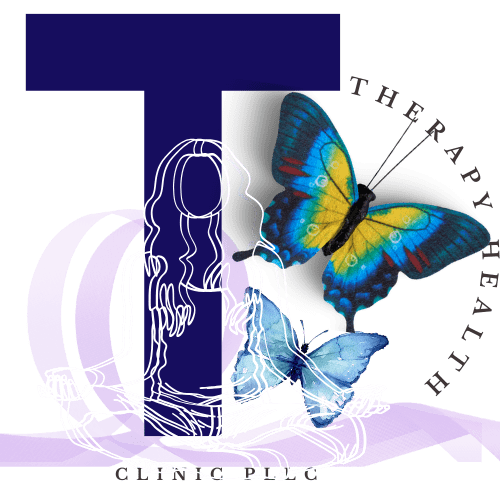Relationships require effort, patience, and understanding. Even the strongest couples face challenges that can strain emotional bonds and create conflict. Couples counseling at Therapy Health Clinic in Oak Park, IL, is designed to help partners improve communication, resolve disputes, and rebuild trust. Whether a couple is experiencing ongoing disagreements, struggling with emotional distance, or simply looking to strengthen their connection, professional guidance can provide the tools needed to foster a healthier, more fulfilling relationship.
Signs That Couples Counseling May Be Beneficial
Relationships can face difficulties that, if left unaddressed, can lead to resentment, emotional detachment, or separation. Couples counseling can help if you and your partner experience:
- Frequent arguments that seem to go unresolved
- Difficulty communicating needs, feelings, or expectations
- Emotional disconnection or lack of intimacy
- Trust issues due to past betrayals or misunderstandings
- Struggles with parenting styles or financial stressors
- Feeling unappreciated, unheard, or unsupported
- Considering separation or divorce but wanting to explore solutions first
Why Couples Counseling Is Essential for Relationship Health
Every relationship encounters challenges, but unresolved conflicts can lead to emotional distance, resentment, and a communication breakdown. Couples counseling offers a neutral, supportive space where both partners can express their concerns openly and work toward practical solutions.
Many conflicts arise from misunderstandings, unmet expectations, or past emotional wounds. By addressing these issues constructively, couples can break negative communication patterns and develop a more profound sense of understanding and empathy. Counseling also provides essential tools to navigate stress, improve conflict resolution skills, and rekindle emotional and physical intimacy. Through guided discussions, structured exercises, and therapist-led interventions, couples can restore trust and reconnect on a deeper level.
Steps in the Couples Counseling Process
- Initial Consultation and Relationship Assessment: The therapist meets with both partners to discuss concerns, relationship history, and counseling goals. This step helps identify core issues and set a structured plan for therapy.
- Improving Communication Skills: Couples learn effective communication strategies, such as active listening, using “I” statements, and managing conflicts without escalation. This step helps break unhealthy communication patterns.
- Identifying and Addressing Underlying Issues: Many relationship struggles stem from unresolved emotional wounds or unmet needs. Counseling helps uncover these deeper concerns and work toward healing.
- Rebuilding Trust and Emotional Connection: Rebuilding trust is essential, whether due to past betrayals, emotional distance, or frequent conflicts. Therapy provides guided exercises to reestablish emotional safety and strengthen intimacy.
- Developing Conflict Resolution Strategies: Couples practice techniques to handle disagreements in a healthy, productive manner rather than resorting to blame or avoidance. Learning to resolve conflicts effectively prevents future misunderstandings.
- Sustaining Progress and Maintaining Relationship Growth: The final phase of counseling focuses on reinforcing positive relationship habits, ensuring long-term success through continued emotional awareness and effective communication practices.
Preventing Relationship Breakdown Through Proactive Strategies
Strong relationships require ongoing effort and mutual investment. Preventing future conflicts involves maintaining open communication, regularly expressing appreciation, and setting shared goals. Couples who engage in proactive strategies, such as regular check-ins, date nights, and intentional quality time, are more likely to sustain long-term happiness. Establishing boundaries, managing external stressors, and supporting each other’s personal growth contribute to a healthier, more resilient partnership. Learning to navigate disagreements with patience and understanding can prevent minor conflicts from escalating into significant relationship stressors.
Partners actively participating in couples counseling often experience a renewed sense of connection, trust, and emotional security. By learning to communicate openly and resolve conflicts constructively, couples build a foundation for long-term relationship success. Many find their bond deepens as they become more attuned to each other’s emotional needs. Counseling also fosters greater self-awareness, allowing each partner to recognize personal growth opportunities contributing to a stronger relationship. Over time, couples develop a deeper appreciation for each other, creating a fulfilling and resilient relationship.
Frequently Asked Questions
Is couples counseling only for relationships in crisis?
No, couples counseling benefits all relationships, whether addressing major conflicts or simply improving communication and connection.
What if my partner is hesitant about counseling?
It’s common for one partner to be unsure about therapy. An initial session can help ease concerns and highlight how counseling provides mutual benefits.
How long does couples counseling take?
The duration varies based on individual needs. Some couples see improvements in a few sessions, while others may benefit from ongoing therapy to reinforce progress.
Can couples counseling help with intimacy issues?
Yes, therapy helps address emotional and physical intimacy concerns by fostering open dialogue and developing strategies to rekindle connection.
What if we decide to separate during counseling?
While the goal is often to strengthen relationships, therapy can provide clarity and support for amicable decision-making if separation becomes the best path forward.
Take the First Step Toward a Healthier Relationship
A strong, fulfilling relationship is built on communication, trust, and mutual understanding. At Therapy Health Clinic in Oak Park, IL, our couples counseling services provide the tools and guidance to navigate challenges, strengthen emotional connections, and create lasting happiness.
If you and your partner are ready to enhance your relationship and develop healthier communication skills, contact Therapy Health Clinic today to schedule a consultation. A stronger, more connected future starts with a single step.







